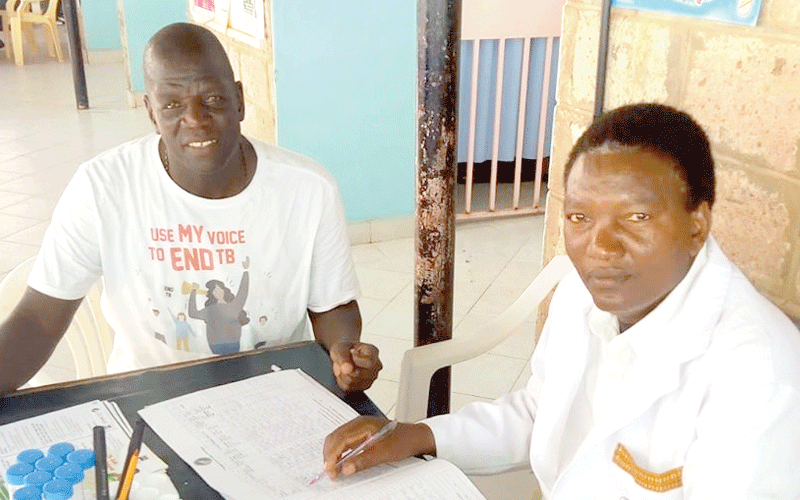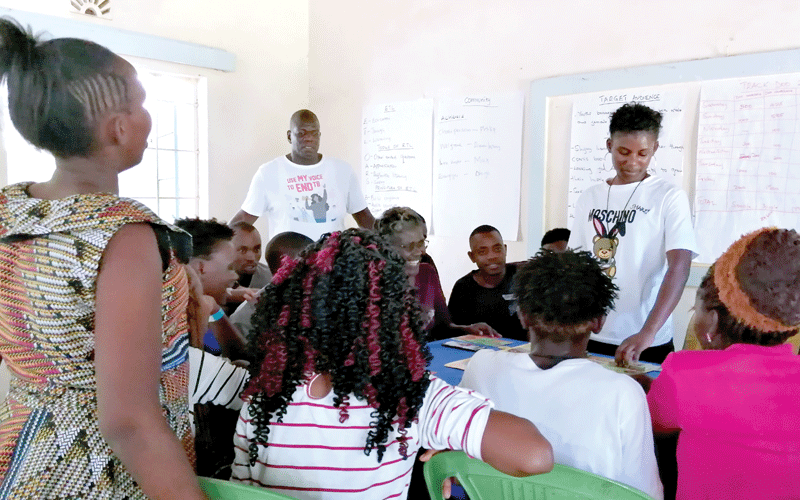Activist at forefront in stopping TB transmission

Looking back, Peter Owiti realised in his polygamous family of 28 siblings, he had lost eight to HIV/Aids complications and TB. He noted there was no other way to fight this monster by facing it head on.
His solution was to form Wote Youth Development Projects in 1999. The organisation’s aim was to use football to fight HIV and TB.
A few years later, in 2006, Owiti’s son contracted TB from his adopted nephew. The disease had hit home and he had to make changes.
Since he previously focused on people with HIV, his son contracting TB pushed him to focus on the infectious disease.
At first, Owiti didn’t know how to handle it, but “With the little knowledge I had acquired through the project, I was able to navigate the situation,” he says. He had his child put on the six-month treatment regimen and he got better.
Poor maginalised lot
At community level, Owiti focused on implementing his project with support from donors such as Stop TB Partnership, Amref Health Africa and Geneva Global Inc.
He also invested personal funds into the project that saw him and volunteers work with community health workers on a door-to-door campaign to raise awareness about the disease, especially since it affects poor and marginalised communities.
“When they contract TB, they lose their income. It is worse when the patient is the sole breadwinner.

This comes with many trips to the hospital to collect drugs weekly during intensive phase, and monthly during continuation phase. Telling them to take drugs without giving them food is a challenge.
Then, there are people who are difficult to reach out to because they live in remote locations,” he says. As a global anti-TB activist, Owiti says he has dealt with hundreds of cases.
Annually, the organisation handles around 1,500 cases, with treatment for a minimum of six months and two years of multidrug resistant-TB.
His activities saw him catapulted to the international front, earning him invitiations to global forums such as the Union Conference, where he was recognised as an important player in the fight against TB.
“As an organisation and partners, we have been able to find missing cases and hand them diagnosed and treated.
We have also been able to raise the profile of TB, so that duty bearers can pay attention. We have fought for the rights of patients to access life-saving drugs.
We have been able to advocate for research and development on less toxic drugs and shorter regimen for adults and for child friendly regimens,” he explains.
Some challenges Owiti has had to deal with include lack of funds to run the project, which means volunteers are unable to work for long or opt to change careers once an opportunity arises.
Consequently, he has had to fund projects out of his own pockets, something that is not sustainable.
“Other than funds, there are also issues of stigma and violation of rights of TB patients and dealing with this becomes hard.
In some cases creating awareness in the community is futile as some still fail to understand this dangerous disease,” he explains.
Sometimes, the community has high expectations Owiti and the team cannot meet.
“The other challenge is the expectation of the community and the sick. They feel we are able to solve all their socio-economic problems, which is very difficult.
In many cases, community health volunteers’ burn out is too high. We can train 200 and after a few months we are left with only 24 because they have limited resources,” he says.















